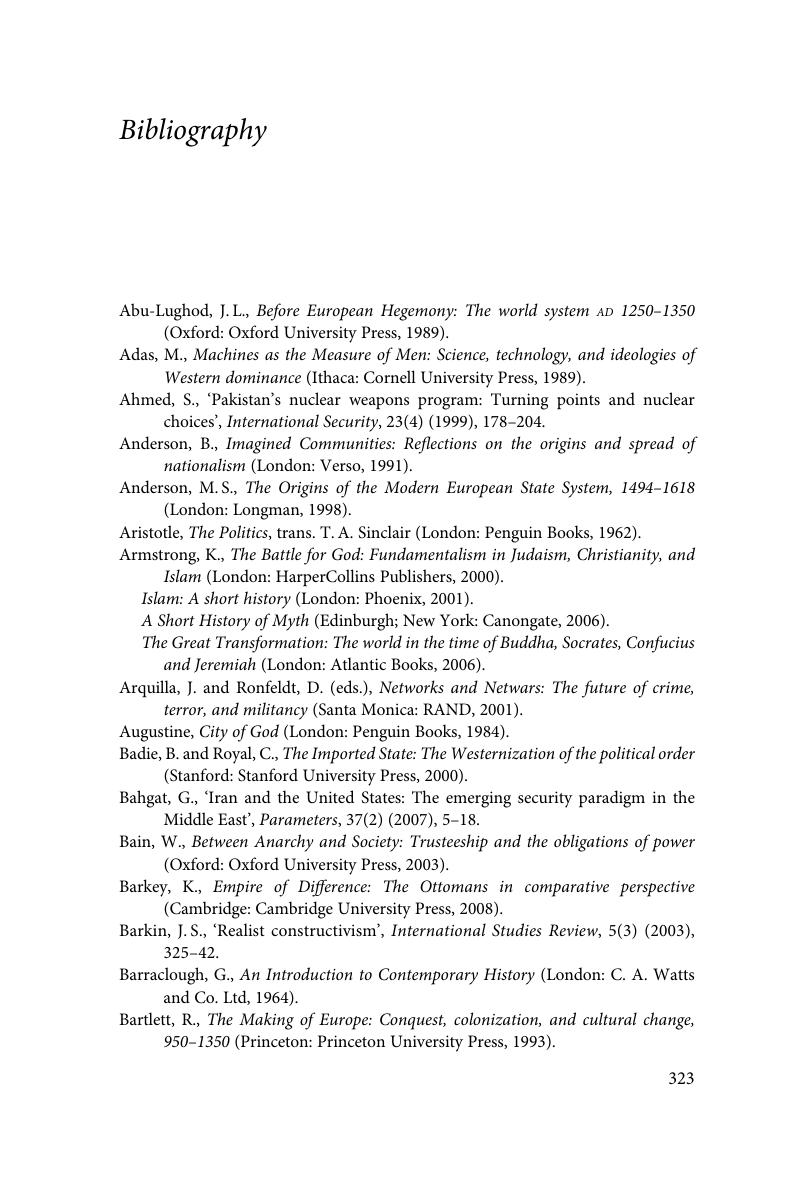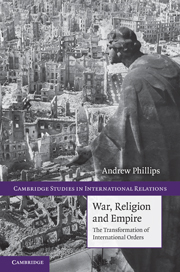Book contents
- Frontmatter
- Contents
- List of tables
- Acknowledgements
- Introduction
- PART I Conceptual framework
- PART II The historical transformation of international orders
- PART III Contemporary challenges and future trajectories of world order
- Conclusion
- Bibliography
- Index
- Cambridge Studies in International Relations
- References
Bibliography
Published online by Cambridge University Press: 10 January 2011
- Frontmatter
- Contents
- List of tables
- Acknowledgements
- Introduction
- PART I Conceptual framework
- PART II The historical transformation of international orders
- PART III Contemporary challenges and future trajectories of world order
- Conclusion
- Bibliography
- Index
- Cambridge Studies in International Relations
- References
Summary

- Type
- Chapter
- Information
- War, Religion and EmpireThe Transformation of International Orders, pp. 323 - 346Publisher: Cambridge University PressPrint publication year: 2010



